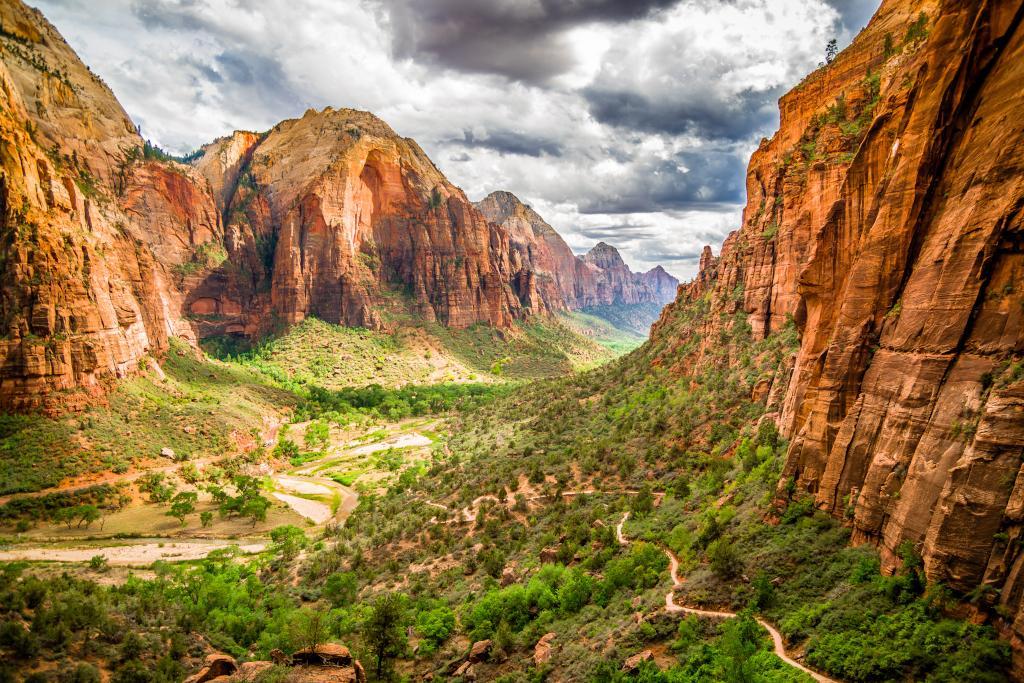Introduction
National parks are protected areas of land or sea that are designated by a government to preserve natural and cultural resources for future generations. These parks are often home to unique ecosystems, diverse wildlife, and historical or archaeological sites. The concept of national parks originated in the United States in the 19th century, and has since spread to countries around the world.
The Importance of National Parks
National parks play a vital role in protecting biodiversity, preserving ecosystems, and providing essential ecosystem services. Here are some of the key benefits of national parks:
- Biodiversity Conservation: National parks serve as safe havens for countless plant and animal species. By protecting their habitats, we can help prevent extinction and maintain the balance of nature.
- Ecosystem Preservation: National parks help to preserve fragile ecosystems, such as rainforests, coral reefs, and wetlands. These ecosystems provide essential services, such as clean air, water, and climate regulation.
- Scientific Research: National parks offer invaluable opportunities for scientific research. Scientists can study ecosystems, monitor wildlife populations, and investigate the impacts of climate change.
- Education and Inspiration: National parks provide a unique opportunity for people of all ages to learn about nature and appreciate its beauty. Visiting a national park can inspire a lifelong love of the outdoors and a commitment to environmental protection.
- Economic Benefits: National parks can contribute significantly to local economies through tourism, recreation, and conservation efforts. They attract visitors, create jobs, and support local businesses.
Popular National Parks Around the World
There are countless national parks to explore around the world, each with its own unique charm and attractions. Here are a few of the most popular national parks:
- Yellowstone National Park, USA: Known for its geysers, hot springs, and diverse wildlife, Yellowstone is one of the most iconic national parks in the world.
- Serengeti National Park, Tanzania: Renowned for its annual wildebeest migration, the Serengeti is a must-visit for wildlife enthusiasts.
- Great Barrier Reef Marine Park, Australia: The world's largest coral reef system, the Great Barrier Reef is a breathtaking underwater wonderland.
- Galapagos Islands National Park, Ecuador: Home to a unique array of endemic species, the Galapagos Islands are a living laboratory for evolution.
- Amazon Rainforest, South America: The largest rainforest in the world, the Amazon is a biodiversity hotspot and a vital carbon sink.
Planning Your National Park Adventure
If you're planning a trip to a national park, here are some tips to help you make the most of your experience:
- Choose the Right Park: Consider your interests, fitness level, and travel budget when selecting a national park.
- Research the Park: Learn about the park's history, attractions, and regulations.
- Plan Your Itinerary: Decide what activities you want to do and how long you'll spend in the park.
- Pack Appropriately: Bring comfortable clothing, sturdy footwear, and essential supplies.
- Respect the Environment: Leave no trace and follow park rules to protect the natural resources.
- Consider the Season: Some parks are best visited during certain times of the year.
- Book Accommodations in Advance: Popular parks can fill up quickly, so book your accommodations early.
Conclusion



0 Comments